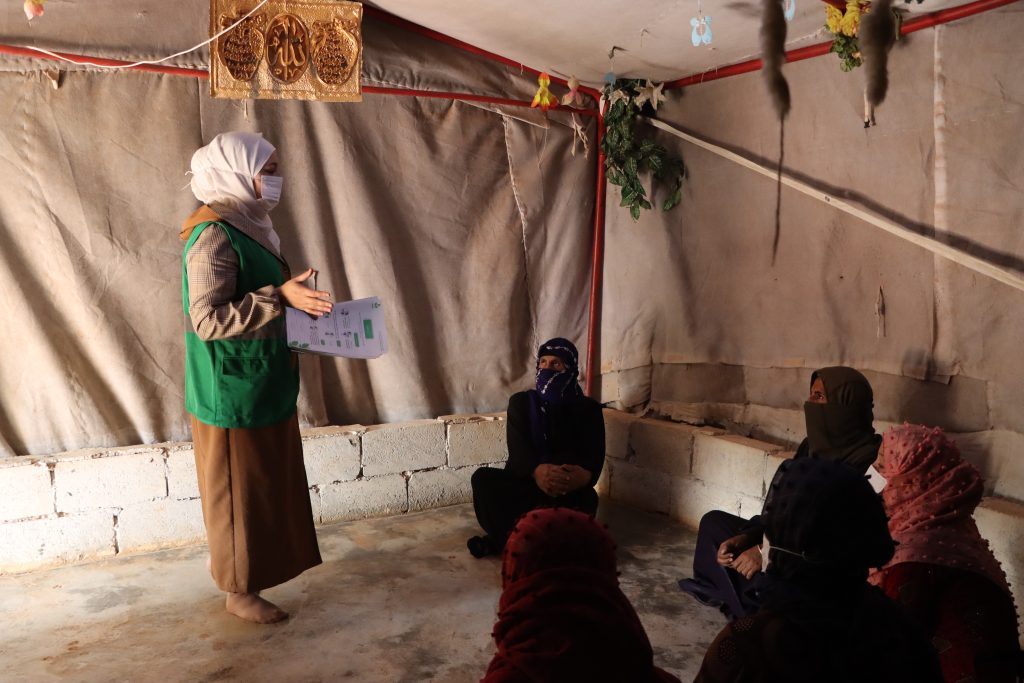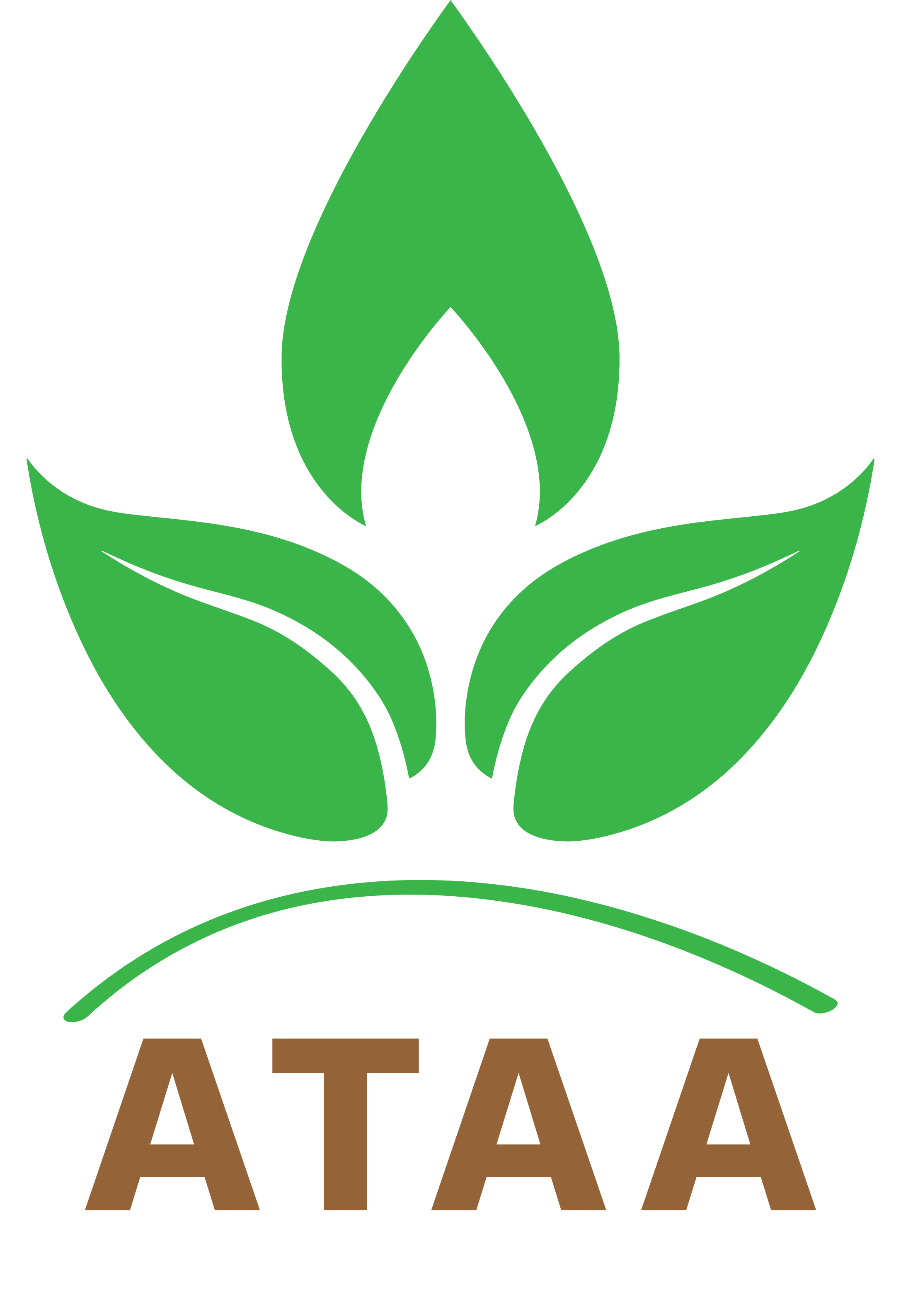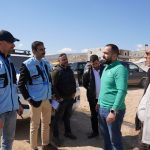This occasion is absent from many women in Syria, as women here barely have time to feed their children. They live the bitterness of oppression, displacement and death in conditions described as the catastrophe of the century. This was exacerbated by the earthquake that struck northern Syria and southern Turkey, as many families spend long nights without any form of temporary shelter in the cold and harsh living conditions, in the streets, under trees, and in makeshift tents.
“Fatima Hamada, a protection worker at Ataa Association for Humanitarian Relief,” has been working with women and children for a long time, so she realized from the first moment of the earthquake the magnitude of the disaster that could be for women and children in particular, and that rescue and emergency teams need someone who can deal with women and meet their needs. In this sudden disaster.
Regarding the impact of the earthquake and disasters on women, Hamada says, “It was a rainy and cold winter day, and many women were standing on the threshold of the rubble of their homes in a deplorable state, waiting for the rescue teams to pull out their son or husband from under the rubble. It was a terrible scene, and many families were scattered here and there not knowing where their sons or husbands are, whether they are under the rubble or refugees nearby.”
“Fatima” tried to relieve the women and work to reunite the separated families after the disaster. She hurried and joined the emergency teams formed by Ataa and helped build tents next to the rubble to be a temporary shelter for the survivors while waiting for their relatives to come out from under the rubble. She wandered between the tents and in the shelters to relieve the pain of the women and consoling them after the trauma they were subjected to, and fulfilling part of their needs by helping to provide them with food baskets, detergents, coats and meals.

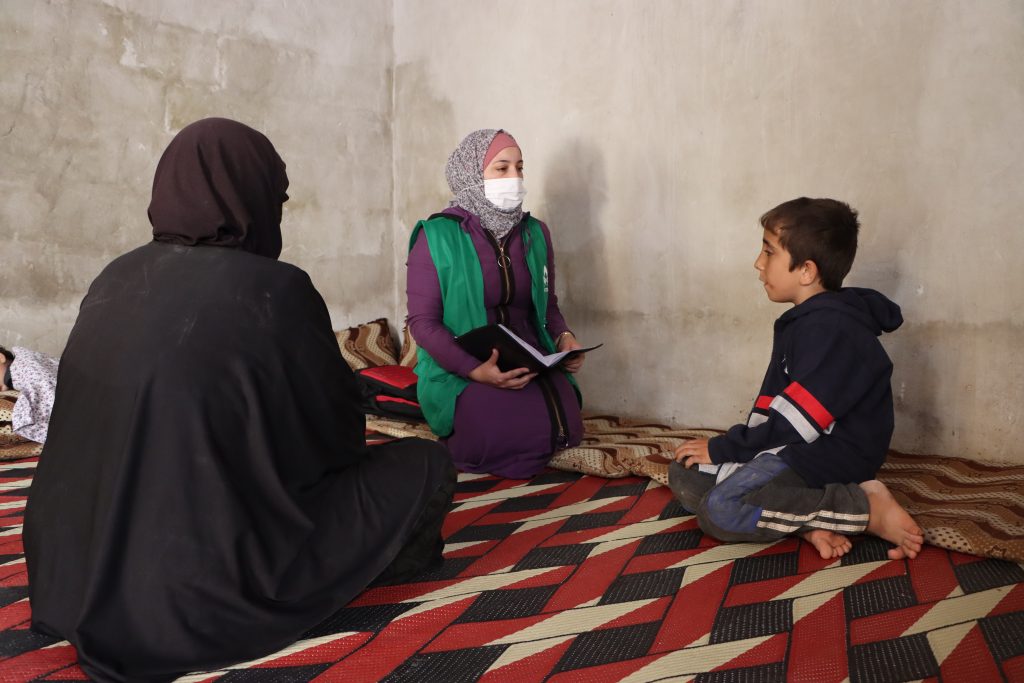
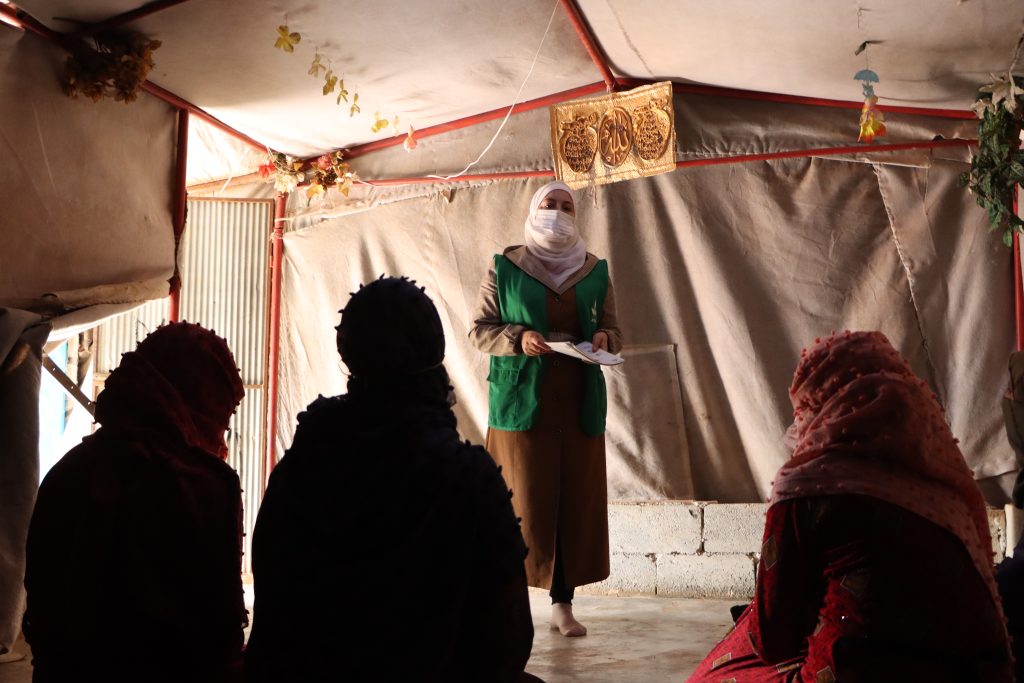
Displaced and refugee women and girls were in a very vulnerable situation before the earthquake and now with their homes and livelihoods destroyed, women and girls often suffer the most during humanitarian emergencies, especially pregnant women who are at risk of complications if they cannot access the medical care they need in Such harsh conditions.
Ataa Association worked with all its power to support women, reduce their suffering, and alleviate what they were exposed to and are being subjected to. It launched many programs and initiatives, including an “ For Her Sake ” in the presence of a group of humanitarian workers, With the aim of reaching psychological balance, integration, and social and economic empowerment, and providing them with cash sponsorships in addition to educational lessons and lectures, to explore their capabilities in the business world and provide them with job opportunities.
It is noteworthy that in Syria, according to United Nations statistics, 80% of the displaced are women and children, and about 25,000 women are pregnant. In times of crisis, these percentages increase, and women are more likely to face food insecurity. Moreover, only 1 in 10 women seek help when abused.
